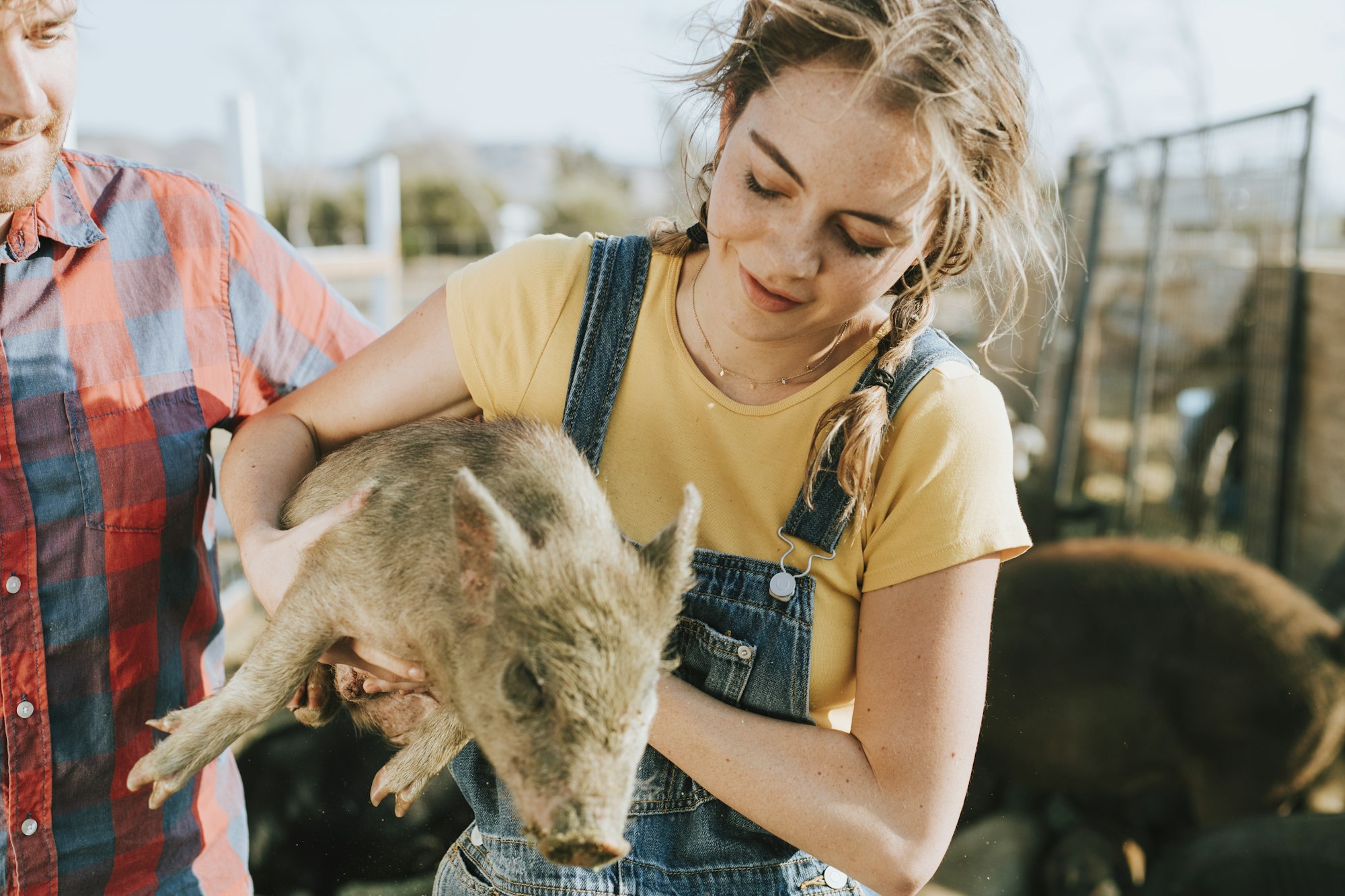Imagine a farm where technology can “listen” to pigs and understand if they’re happy, stressed, or unwell—all from the sounds they make. Thanks to advancements in artificial intelligence (AI), researchers have developed technology that decodes pig noises, offering farmers powerful insights into their herds’ well-being. This innovation promises a better quality of life for the animals and a productivity boost for farms, showing how AI might just change the future of animal care.

How AI Interprets Pig Noises to Reveal Emotions
Pigs are expressive creatures, and they make specific sounds based on how they feel. By using deep learning, a type of AI that processes vast amounts of information, scientists are training machines to identify emotions from pigs’ grunts, oinks, and squeals. The AI analyzes patterns in sound, linking them to feelings like happiness, stress, or discomfort, which then helps farmers understand how their pigs are doing in real time.
Why “Oink Recognition” Is a Game-Changer for Farming
This new AI technology has the potential to revolutionize pig farming with some big benefits:
- Boosted Animal Welfare: By spotting signs of stress or illness early, the AI helps farmers address issues before they become serious, improving overall animal welfare.
- Increased Farm Productivity: Happier, less-stressed pigs tend to eat and grow better, which is beneficial for farm productivity.
- Simplified Farm Management: AI monitoring systems allow farmers to keep tabs on their herds without needing constant hands-on inspections, giving them more time to focus on other tasks.
- Sustainable and Ethical Farming: Healthy animals mean reduced need for antibiotics, supporting more natural and eco-friendly farming practices.
Training the AI and Bringing It to Farms
Researchers collected thousands of recordings of pig sounds and linked each type of noise to specific emotional states. Over time, they’ve fine-tuned the AI to be extremely precise in detecting these sounds. Now, they’re working on ways to integrate it with existing farm systems and even developing apps to make it accessible from smartphones.
Challenges Ahead
Despite the excitement, there are a few challenges to address before this AI becomes standard on farms:
- Implementation Costs: Setting up advanced AI systems and equipment for sound analysis may be costly, especially for smaller farms.
- Data Privacy and Security: Just like other AI technologies, keeping data safe and private is essential as farms adopt these systems.
- Ethical Considerations: Continuous AI monitoring raises questions about how much we should rely on technology in animal care.
What’s Next?
For now, this “oink recognition” technology is focused on pigs, but there’s a lot of potential for other animals too, like cows and chickens. Researchers are exploring how to combine sound analysis with other health metrics, aiming to provide farmers with a complete picture of their animals’ physical and emotional well-being.
In the future, this could mean smarter, kinder farms where AI helps care for animals as much as it helps farmers grow their business.

FAQs: Understanding AI and Pig Sound Analysis
1. How does the AI actually understand what different pig sounds mean?
The AI uses a process called deep learning to analyze various pig sounds. By comparing these sounds with known behaviors and physiological signs like heart rate, researchers train the AI to associate specific noises with different emotional states. The AI continuously learns and improves its accuracy by processing more sounds over time.
2. What are the main benefits of using AI to analyze pig sounds?
The primary benefits include enhanced animal welfare, as early detection of stress or illness allows for quicker responses. It also leads to increased farm productivity since healthier, happier pigs grow better. Additionally, it simplifies farm management by automating the monitoring process, and promotes sustainable farming practices by potentially reducing the need for medications like antibiotics.
3. Are there any significant challenges that could hinder the adoption of this technology?
Yes, several challenges could affect the widespread adoption of this technology. The cost of implementing advanced AI systems can be high, which might deter smaller farms. Data privacy and security are crucial, as farms need to protect sensitive information collected by the AI. Ethical considerations also arise regarding the extent of surveillance and reliance on technology in animal care.
Sources Reuters



Читателям предоставляется возможность оценить представленные данные и сделать собственные выводы.
Автор старается не высказывать собственного мнения, что способствует нейтральному освещению темы.